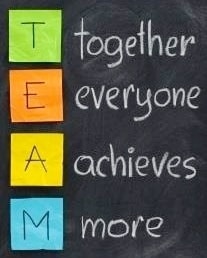Covid-19 vs. Culture – You Decide

There can be no doubt about the devastating impact the global Coronavirus Crisis is having on so many individuals, families, societies and nation states. The true cost, size of human loss and suffering, economic damage is currently incalculable. While every effort is being made to control the pandemic and adapt to the medical emergency, its easy to feel completely helpless and go straight into ‘Victim Mode’ But there are going to be some real lessons available to those who run, manage and own organisations and companies both large and small. Many of those lessons will come from a diagnosis of their prevailing organisational Culture!
It’s a bittersweet experience to tune into the news at the moment. With so many in Lockdown, we are a captive audience and hear almost hourly news on the latest number of new infections, new rescue measures from the Government and much more. Equally it is heartening to hear of the heroic actions of engineering firms making ventilators, nearly ½ million people volunteering to support the NHS (the NHS & Care Sector itself), transport & retail staff soldiering on and local communities giving a human outpouring of care and kindness.
At a macro level, it’s fascinating to see that the world system is throwing up all sorts of strange insights, surprises and clues to a possible better future. For example, the shutdown of the Chinese economy has resulted in a direct equivalent reduction in pollution and CO2 emissions. Globally the total number of deaths has actually gone down for now; there are less car accidents, excess deaths due to toxic air, a lower murder rate. We really do have a once in a generation opportunity if we choose to grasp it and co-operate when we re-start the economy.
But closer to home there is a wake-up call to every single organisation in the land, particularly for larger businesses employing 1,000s of people and serving many more in their customer base. The powerful and pervasive nature of company cultures mean that they affect virtually everyone. Add to this, the subtle and hidden ways culture can impact our lives, it has both a cumulative effect and one that can be harder to identify and tackle when it goes wrong.
I spoke to a leading Retail People Executive last week. He was working from home having been out the previous week supporting frontline store colleagues. The reminded me of the important adage, “Never let a good crisis go to waste!” We discussed the harsh reality of having to reinvent supply chains, new rosters and relationships with suppliers to cope. It is true to say that when the tide goes out, you really get to see who is wearing a bathing costume and who is not! This crisis is exposing the best and worst of organisations in terms of their responses and what it exposes about them. Here are just a few examples of cultural problems emerging.
Hierarchy and Control: Communications and how they flow to colleagues are obviously critical currently and a lifeline for home workers and those having to work from home. Rather than speeding up this flow, we have examples of large businesses showing their true hierarchical nature and actually slowing down or grinding to a halt. Rather then empowering local units and divisions we’ve heard about ‘Group Company’ owners controlling everything centrally and taking twice as long to release key information. If you are a smaller or remote unit it is then taking days or even weeks to be able to act.
Ways of Working: Many businesses are talking about the transition to most of their colleagues working remotely. Poor and inefficient ways of work at normal times are now being exaggerated causing unhealthy tension, the breakdown in decision making and productivity. They point to a lack of good role modelling and little or no censure for poor behaviours. An organisation without working values or behavioural principles can become the wild west in a remote working environment.
Zero Line Management: We are hearing about cases of colleagues not hearing a word from their direct Line Manager. Zero, nada, zilch. This is creating a huge amount of additional and unnecessary anxiety with people feeling there is nowhere to turn to. Like water, people are taking the path of least resistance and talking to the people they trust and the people offering advice and support. This further weakens the line manager’s legitimacy and official lines of communication.
Functions not Adapting: We are getting stories of key functions like IT and HR who are struggling to adapt and properly empathise with their service users. Their ‘status quo’ bias means they are putting up more barriers and not less. People are receiving messages like, “I am unavailable at this time and emails will be read on a priority basis.” “Our systems are currently down, please raise a ticket and be aware that waiting times are likely to be x4 times longer than usual.” People are complaining of no creativity or thought is being put into their response, no empathy or alternatives are being provided at all.
Business as Usual – WE ARE OPEN: We are hearing countless stories of very anxious staff who are fully expecting to be sent home or at least work from home due to the risks to themselves, customers and their families. Instead they are receiving some rather dubious excuses from bosses as to why it’s business as usual. Scare tactics are being used to say, if you decide not to come in you are effectively on your own with either just sick pay or unpaid leave at best. Bullying the vulnerable at a time like this is low by anyone’s standards.
You don’t get time off in a crisis from thinking about the how you do business, but you do get rewarded for doing the right thing in the long run. If you don’t lead at this time of great need and crisis you are unlikely to earn the right to do so in subsequent years. Talk to your people, their representatives and seek independent, expert guidance. Don’t waste a good crisis – work on your culture!






